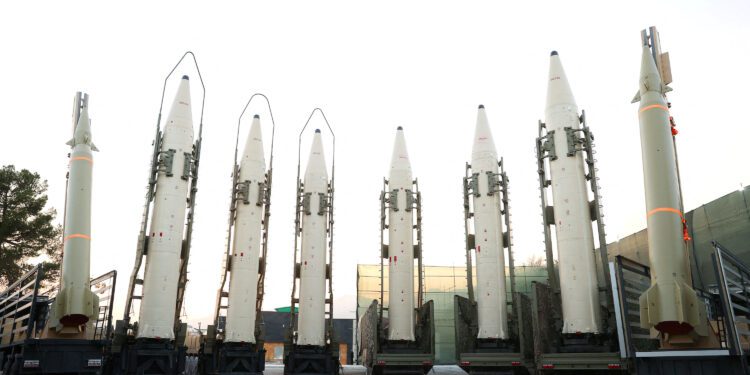Iran has reportedly supplied Russia with a substantial quantity of ballistic missiles, deepening military ties between the two nations. Here’s a comprehensive overview of the situation:
Iran’s Missile Shipment:
According to multiple sources, Iran has delivered around 400 powerful surface-to-surface ballistic missiles to Russia. These missiles include variants from the Fateh-110 family, such as the Zolfaghar, known for their precision and striking capabilities.
Timeline of Events:
The missile shipments began in early January following finalized agreements between Iranian and Russian officials. There have been at least four documented shipments, with more expected in the coming weeks.
Transportation Methods:
Sources suggest that some missiles were transported via ship through the Caspian Sea, while others were delivered by air. The exact logistics of these shipments remain undisclosed.
International Response:
The news has sparked concerns among Western nations, particularly the United States, regarding Russia’s acquisition of advanced weaponry from Iran. The U.S. has expressed apprehension over the potential security implications of such transfers.
Impact on Geopolitics:
The Iran-Russia missile deal has significant implications for regional and global security dynamics. It underscores the deepening military cooperation between Tehran and Moscow and raises questions about their strategic objectives.
Military Capability:
Experts assert that the Fateh-110 missiles and Zolfaghar variants possess advanced targeting capabilities, making them valuable assets in modern warfare scenarios. Their potential use could significantly impact ongoing conflicts and regional stability.
Ukraine Conflict:
While there’s no evidence of Iranian missiles being deployed in the Ukraine conflict, concerns persist over Russia’s military capabilities and intentions in the region. The acquisition of additional ballistic missiles could further escalate tensions.
Broader Strategic Partnerships:
The missile deal reflects Iran’s broader strategy of strengthening ties with Russia and other international actors to counterbalance Western influence. It underscores Tehran’s willingness to engage in strategic cooperation to advance its interests.
Global Ramifications:
The Iran-Russia missile deal has broader implications for global security, especially in the context of escalating tensions in the Middle East and beyond. It highlights the evolving nature of geopolitical alliances and the challenges they pose to existing power dynamics.
Looking Ahead:
As the situation unfolds, policymakers and analysts will closely monitor developments related to the Iran-Russia missile deal. The repercussions of this strategic partnership are likely to shape future diplomatic and military engagements in the region and beyond.
The Iran-Russia missile deal represents a significant development with far-reaching consequences for international security. It underscores the complex dynamics of modern warfare and the evolving nature of geopolitical alliances in an increasingly multipolar world.
















